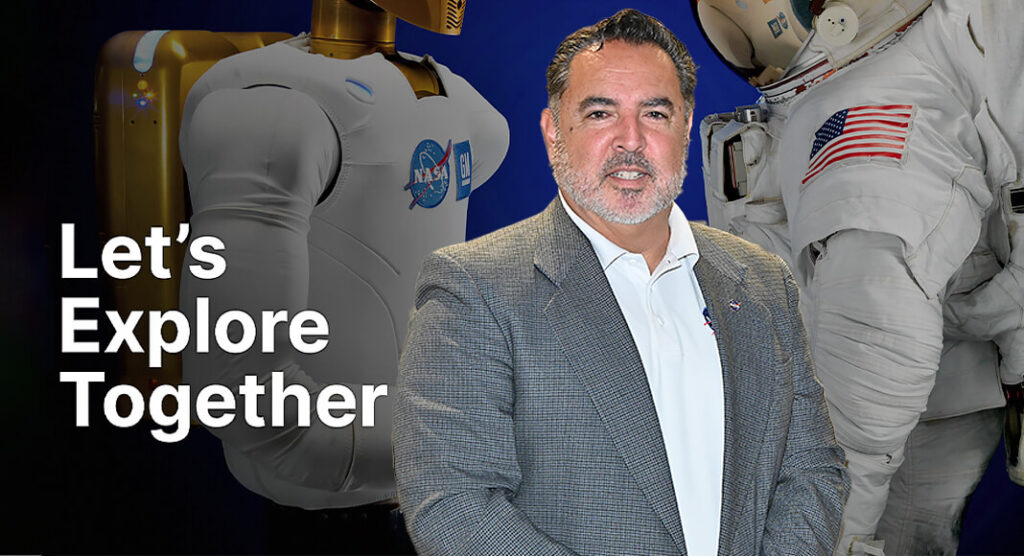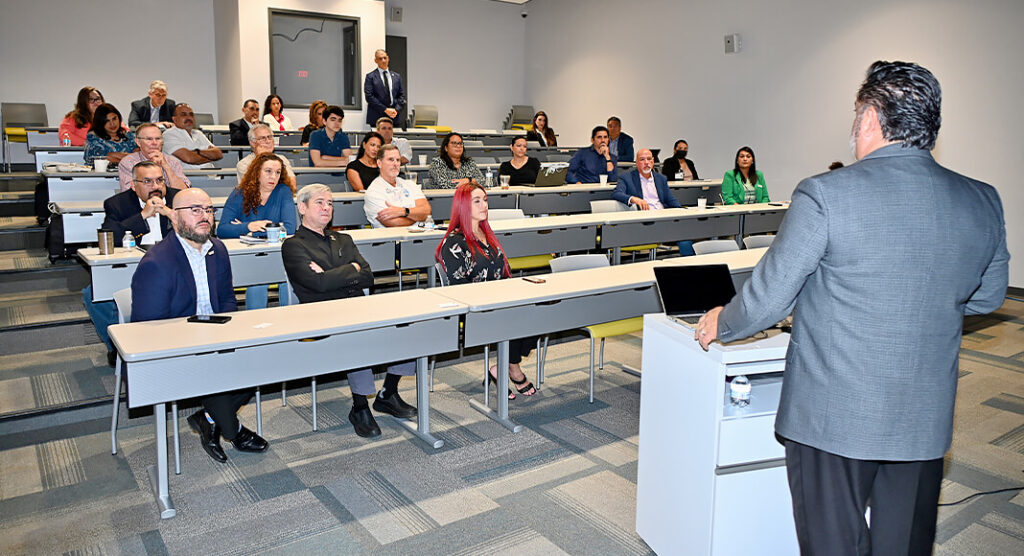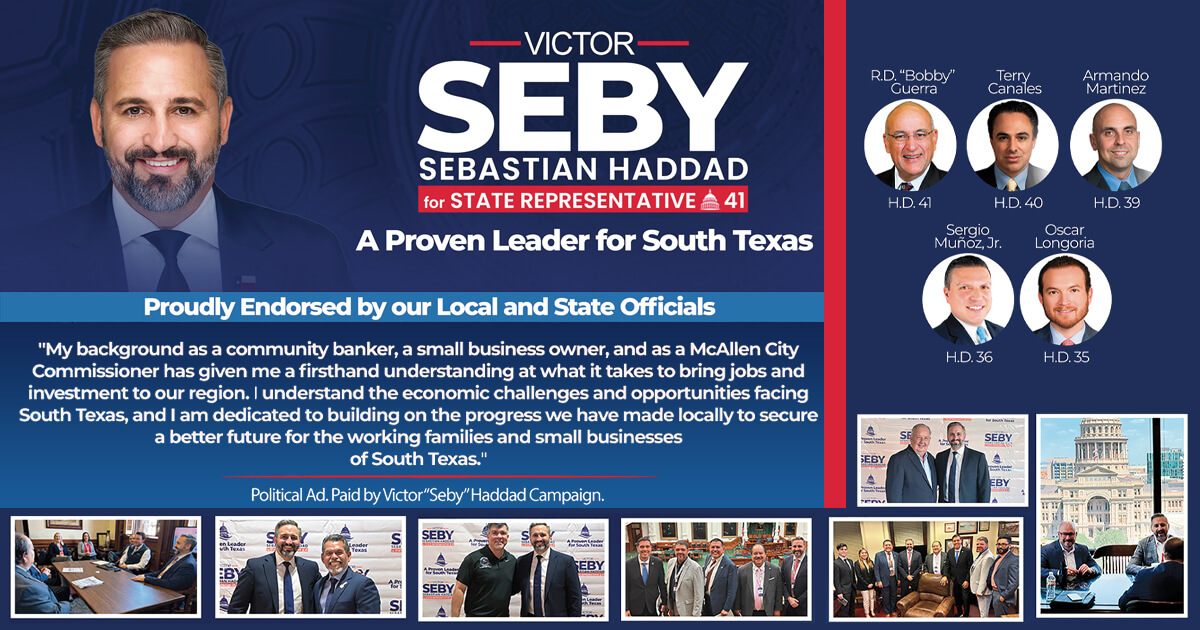
Texas Border Business
By Roberto Hugo González
On August 9, 2024, leaders from across Rio South Texas convened for a vital conference hosted by COSTEP, Council for South Texas Economic Progress, under the leadership of CEO Adam Gonzalez. The event, which attracted stakeholders from Cameron, Hidalgo, Jim Hogg, Starr, Webb, Willacy, and Zapata counties, focused on fostering regional collaboration to drive economic growth in the aerospace industry. A key highlight was a presentation by Walt Ugalde from the NASA T2X Program, who emphasized the vast potential of NASA’s Early-Stage Innovations & Partnerships portfolio of resources to catalyze high-tech industry growth in the region.

Ugalde’s presentation revolved around NASA’s Technology Transfer Expansion (T2X) program, which seeks to extend NASA’s extensive resources and expertise to regions like Rio South Texas. He detailed how the area could benefit from NASA’s grants, entrepreneurial initiatives, and educational programs to build a robust aerospace sector. Ugalde reinforced NASA’s commitment to providing long-term support in this endeavor, with hope, as expressed by Gonzalez, of establishing a continued NASA presence in Rio South Texas.
The Johnson Space Center, “The Hub of Human Spaceflight” was also introduced as a gateway to exploring opportunities in space exploration, science, technology, and the space economy. Whether representing industry, government, academia, or the general public, the Johnson Space Center invites everyone to connect through its JSC Front Door web portal to find various ways to collaborate on expanding the frontiers of exploration. This welcoming approach aligns with NASA’s goal of seeking partners with bold ideas to mature the technologies required for human space exploration, enhancing life on Earth through accelerated technology development and commercialization of federally funded research.
Ugalde provided insights into NASA’s strategic shift from traditional space exploration business modalities to a commercial approach that leverages industry, academia, and international partnerships to propel human exploration. This shift opens new opportunities for Rio South Texas, positioning the region as a critical commercial space supply chain player. Collaborations with private entities like SpaceX in the area are key components of NASA’s Moon to Mars initiatives, presenting substantial opportunities for regional growth.
He stressed that NASA’s Human Exploration Program is a national effort, integrating innovative ecosystems across the United States. Rio South Texas, with its growing talent pool and aerospace assets like SpaceX, is well-positioned to contribute significantly to this program. However, Ugalde emphasized recognizing and nurturing local talent to ensure the region’s full integration into the national and global space industry.
The conference highlighted the need for Rio South Texas to unite in its efforts to attract and develop new industries. Ugalde, who has private industry experience in Urban Planning, Economic Development, and Destination Marketing and Management, echoed Gonzalez’s call for breaking down silos between educational institutions, workforce boards, economic development corporations, and municipalities. A unified regional holistic strategy is crucial for creating the talent pipelines needed to support high-tech industries, which offer higher-paying jobs and require advanced educational qualifications.
Ugalde also suggested that Rio South Texas may benefit from developing a comprehensive, long-term strategic plan spanning 5, 10, or 15 years. Such a plan would leverage existing assets and adjust strategies to ensure the region remains competitive in the fast-evolving aerospace sector.
Engaging private industry in regional development projects was another focal point. Ugalde pointed out how NASA has successfully integrated commercial partners into its missions and encouraged Rio South Texas to adopt a similar approach. By involving private industry, the region can secure the funding and expertise necessary to build and sustain new industries.
COSTEP was recognized for its crucial role in bringing together the region’s economic development organizations (EDCs) and innovation ecosystems. Ugalde commended COSTEP’s efforts in promoting collaboration and expressed the NASAT2X program’s willingness to engage with EDCs and other organizations collectively and individually to further Rio South Texas’s integration into NASA’s programs.
Looking ahead, Ugalde reaffirmed NASA’s commitment to maintaining its relationship with the Rio Grande Valley. He emphasized the region’s strong and significant competitive advantages. Additionally, COSTEP has scheduled another event for November 5th, focusing on the semiconductor industry, further solidifying the region’s commitment to becoming a hub for high-tech industries.
The conference marked a significant step forward for Rio South Texas in its pursuit of becoming a leader in the aerospace and semiconductor industries. With NASA’s continued engagement and a strong regional commitment to collaboration and strategic planning, Rio South Texas is poised to achieve long-term economic growth and technological advancement. The ongoing relationship with NASA and the continued efforts of regional stakeholders will be crucial in realizing this vision and establishing Rio South Texas as a key player in the high-tech economy.
Web Resources for Industry and Academia:
https://www.nasa.gov/johnson/frontdoor













